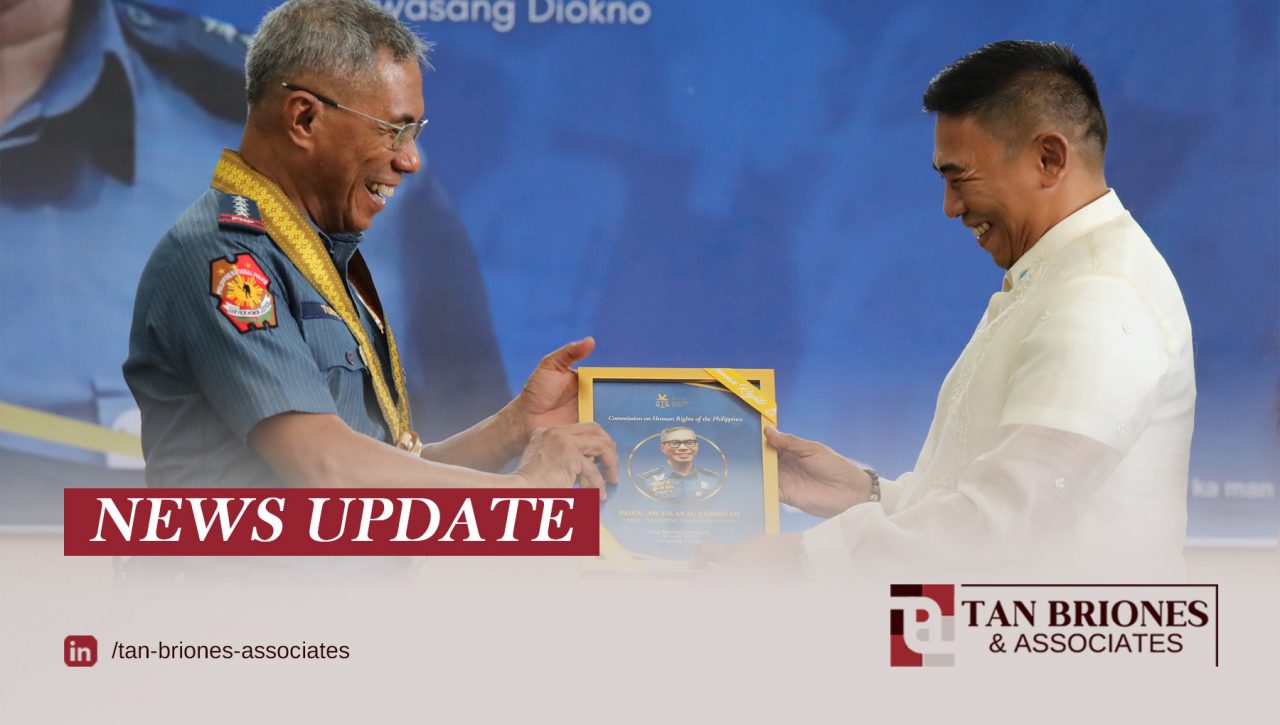
The Commission on Human Rights (CHR) sees the new police leadership’s commitment to lawful and rights-based policing as a step toward stronger institutional cooperation and improved public accountability.
This follows the historic visit of newly appointed Philippine National Police (PNP) Chief Gen. Nicolas Torre III to the CHR during its flag-raising ceremony on June 9 at Liwasang Diokno, where he pledged to uphold due process, reject extrajudicial killings, and align police operations with human rights standards.
CHR Chairperson Richard Palpal-latoc welcomed the PNP chief’s visit, stating that it was significant as it helped foster coordination between the two institutions and contributed to strengthening their working relationship.
“We support the role of the police—they are responsible for ensuring safety in our communities. What matters to us is that their duties are performed within the bounds of the law,” he said.
In his speech, Torre affirmed that the CHR plays a crucial role in ensuring police accountability, describing the commission as the police’s guide in protecting citizens’ rights.
“The CHR is our boss on the protection of human rights,” Torre said.
“I do recognize and I am thankful to the CHR for keeping us always in check and for being a partner of the Philippine National Police in ensuring that everything we do is within the ambit of the law,” he added.
He reiterated a zero-tolerance policy for extrajudicial killings and assured the CHR that his directive to increase arrests as a performance indicator would be carried out with strict adherence to human rights.
“‘Pag lumabas tayo sa judicial process, eh ‘di kriminal na rin tayo; hindi tayo pulis,” Torre said.
(“If we go beyond the judicial process, then we’re no longer police officers—we’re criminals.”)
CHR Commissioner and Spokesperson Beda Epres said Torre’s visit and commitment demonstrate that police work and human rights advocacy are not mutually exclusive.
“Ito ay patunay na posibleng magkasama sa iisang layunin at hindi hiwalay ang adhikain sa pagsusulong ng karapatang pantao, kapayapaan, at seguridad,” Epres said.
Torre emphasized that the use of force must be both justified and proportional, referencing Article 11 of the Revised Penal Code.
“Dedepensa ang pulis kung sa kanilang paningin ay endangered sila, pero siyempre graduated ‘yong force din. Eh, may kutsilyo nga, eh kutsilyo naman ng nail cutter. Alangan naman barilin mo ‘yan? Hindi uubra ‘yan. Pero kung may kutsilyo nga, kris naman at malaking espada at tatlo sila, mag-isa ang pulis, aba’y ibang usapan ‘yan,” he said.
(A police officer will defend himself if he believes he is in danger, but of course the use of force must be proportionate. For example, someone may have a knife—but it’s just the blade of a nail cutter. You can’t shoot someone for that. That won’t stand. But if the knife is actually a kris or a large sword and there are three assailants against one officer, then that’s a different story.)
To reinforce lawful policing, Torre also proposed using affidavits of arrest as a promotion metric and ordered aspiring commanders to submit at least one as proof of proper procedure under Rule 113.
According to the CHR, a memorandum of understanding (MOU) with the PNP is being finalized to formalize their cooperation and integrate human rights safeguards into daily police operations.
“The police are frontliners in ensuring peace and order, but they are also among the most frequently monitored by the CHR due to the volume of complaints,” Palpal-latoc said.
“We support their work as long as it is done within the law and with necessary and proportionate use of force,” he furthered.
Follow Tan Briones & Associates on LinkedIn for more legal updates and law-related articles.







